Do you have what it takes to compete in L.A.’s wildest bike race?
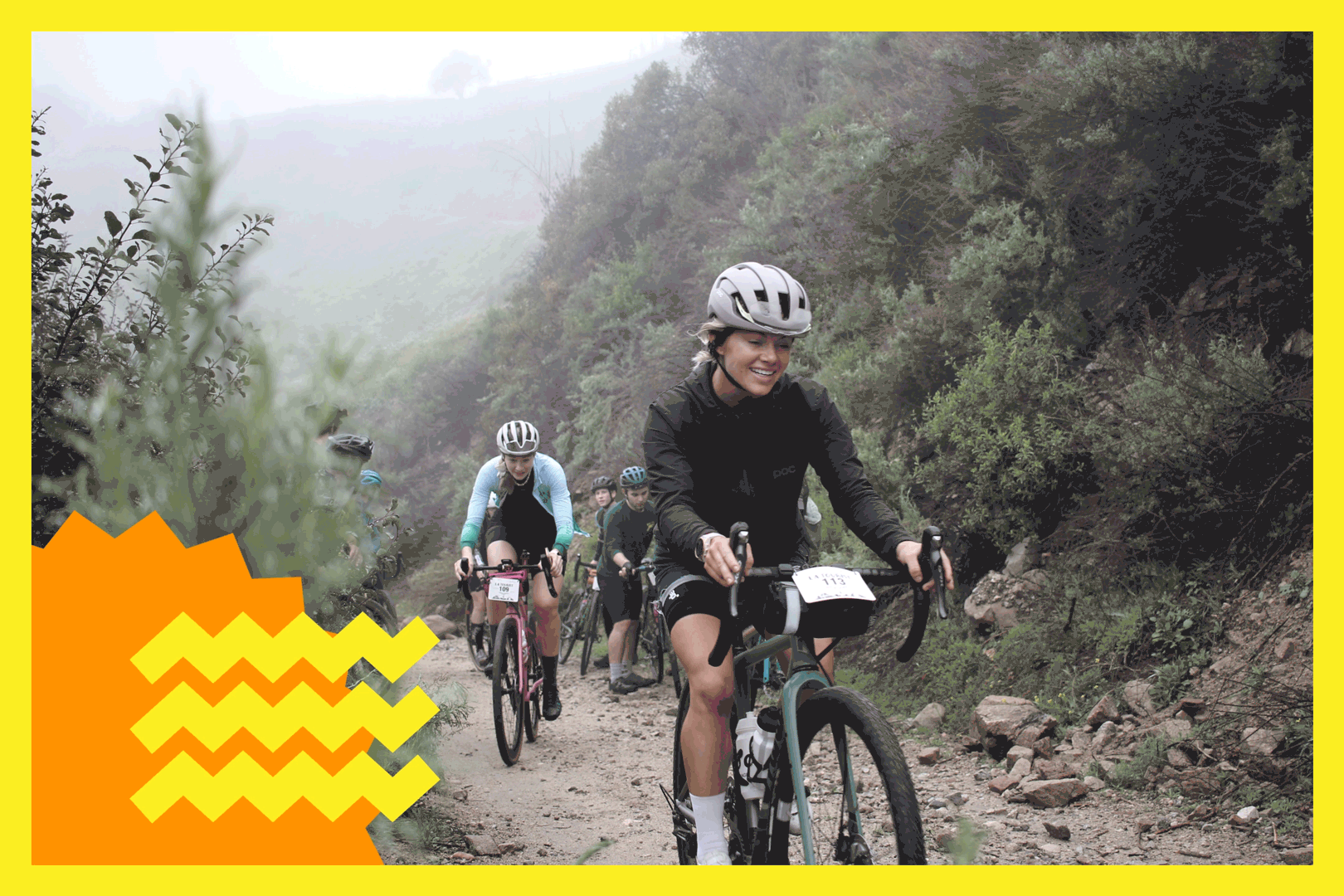
- Share via
Imagine this: You’re riding your bike up the San Gabriel Mountains, climbing thousands of feet over the span of 100 miles. You’re also on a, uh, peculiar mission: to find a handful of paperback books in the middle of the wilderness with nothing but their GPS coordinates to guide you. Also, you’re racing hundreds of other people who are scrambling to complete the same exact task.
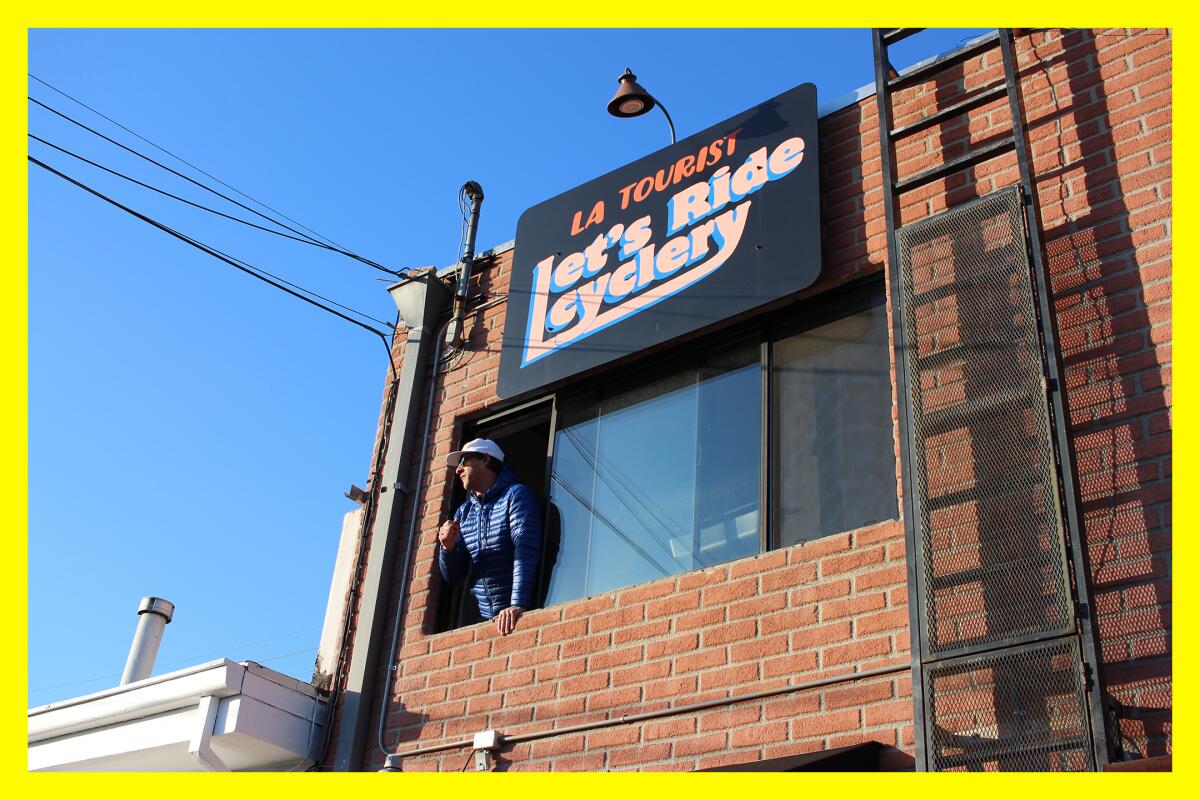
This is not some bookish adventurer’s fantasy, but the real-life premise of the L.A. Tourist Race, a three-race series invented by Michael Kalenda, owner of Burbank’s Let’s Ride Cyclery. For six years in a row, this grueling event has tested the strength, stamina and navigational skills of Los Angeles cyclists, all while showcasing breathtaking trails and terrain right in the city’s backyard. The race is open to gravel riders and mountain bikers of all stripes, but Kalenda admits it tends to draw athletes with a particular mindset.
You are reading The Wild newsletter
Sign up to get expert tips on the best of Southern California's beaches, trails, parks, deserts, forests and mountains in your inbox every Thursday
You may occasionally receive promotional content from the Los Angeles Times.
“It’s going to be the type of person who’s looking for something that’s not the norm in bike racing and likes to get a little bit out there,” he said.
Kalenda came up with the idea for L.A. Tourist after participating in the Leadville 100, a prestigious cross-country mountain bike race in Colorado. Although he loved the camaraderie of the race, his bank account took a hit. Between travel expenses and shelling out for gear, he’d spent thousands.
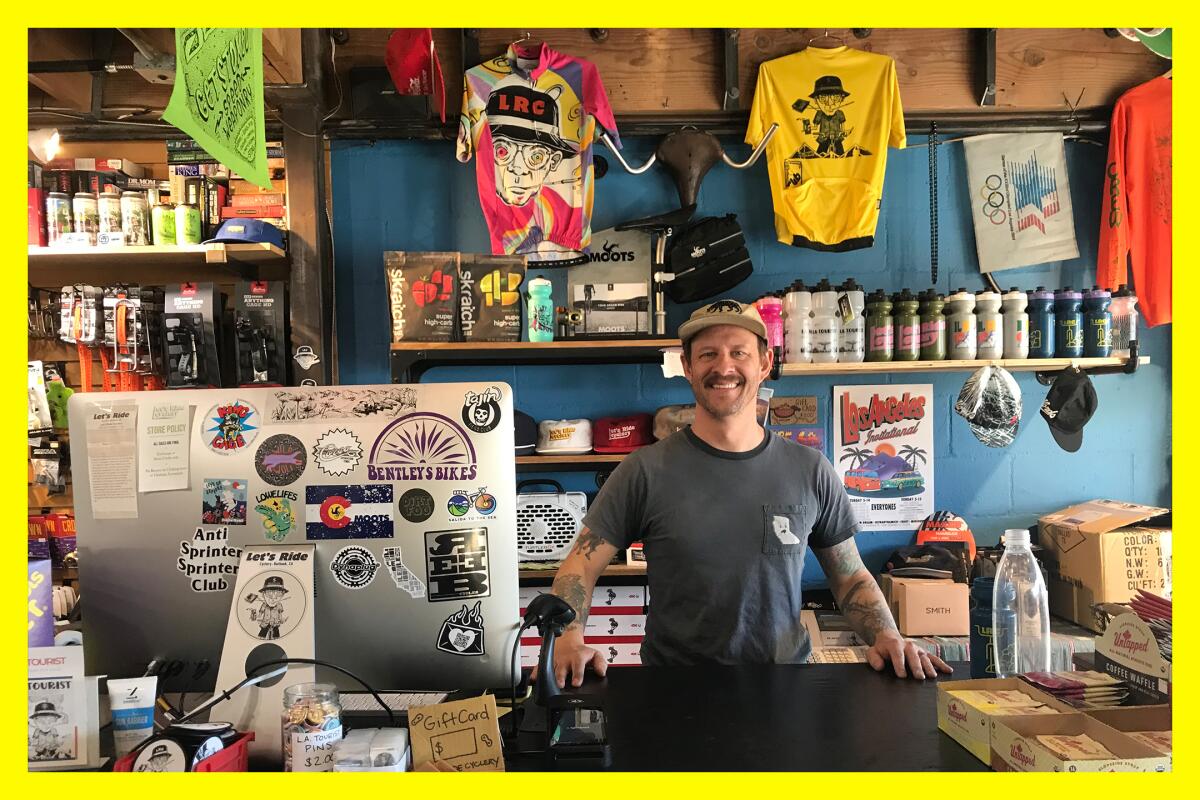
“It was basically born out of having done two Leadville in a row and finishing and being like, ‘How do I do this on my own, but without spending this much money?’” Kalenda said.
To keep costs low (registration fees range from $25 to $30), Kalenda embraces a DIY spirit. He got the idea to use books as checkpoints from the Barkley Marathons, a legendary ultramarathon held in Tennessee, and he scouts the locations himself. Other than the paperbacks, there’s not much else to it. There’s no support van to help you if you get a flat, and no signage telling you where to go. Participants receive a set of GPS coordinates a few days before the race, and it’s up to them to create a route that hits all the checkpoints. On race day, they’re assigned a number, and they must grab the corresponding page from each book in order to finish.
“It doesn’t matter if you want to go clockwise, counterclockwise, or anywhere in between, as long as you use the bike shop as your start and finish and you get to every book, you’ve done the race,” said Kalenda.
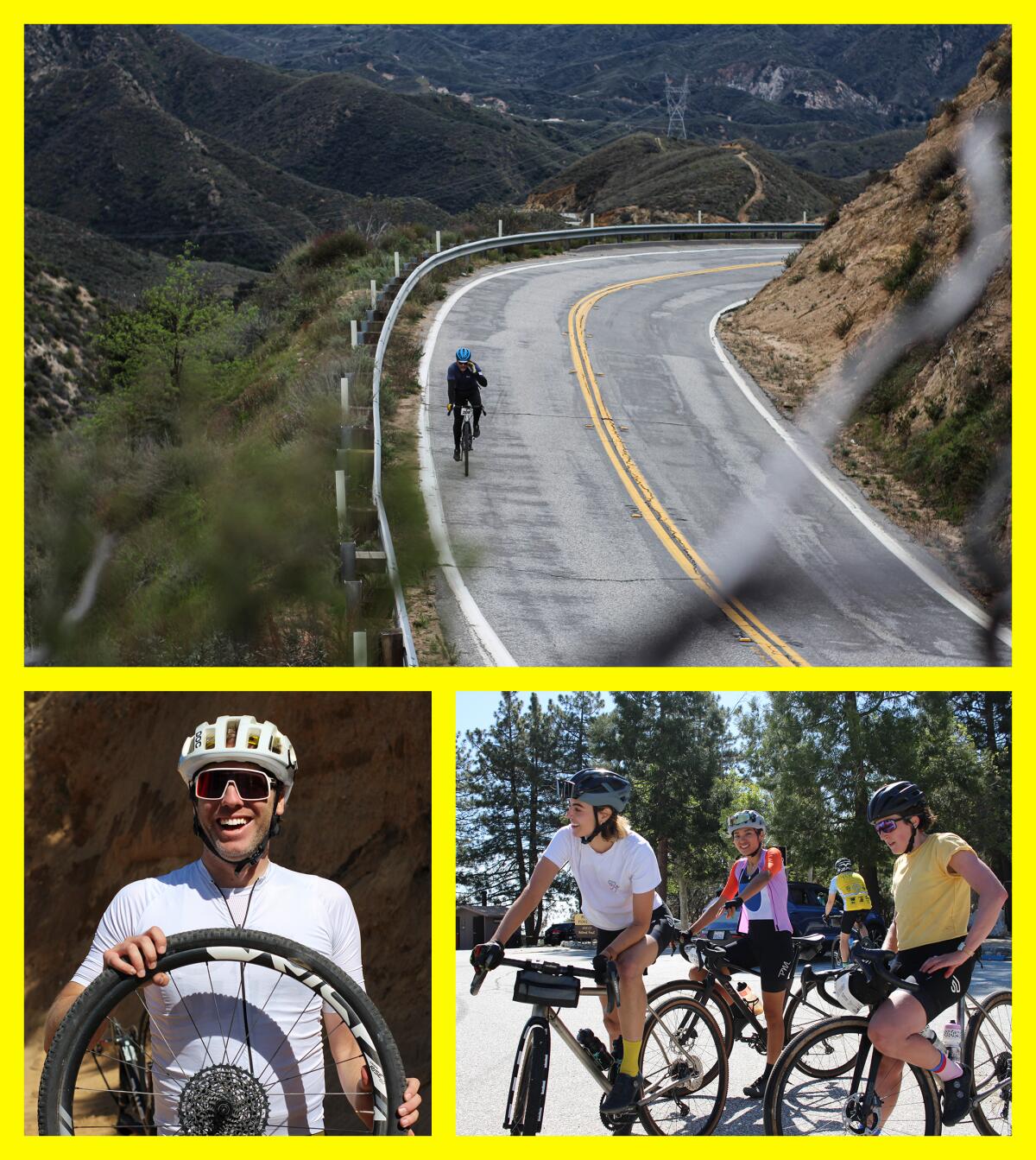
Over the years, L.A. Tourist has grown as local riders and a smattering of out-of-state athletes look for a new challenge. The first two races in this year’s series, held in January and February, each attracted over 200 riders, and the third race, scheduled for April 13, is on track to match those numbers.
For Kalenda, the most rewarding part of L.A. Tourist has been witnessing a new community grow around it.
“Through the after party, they’re sitting and hanging out for an hour, a couple of hours, making new friends, discussing how that person made their map,” he said. “They’re learning all those tips via just being social and hanging out.”
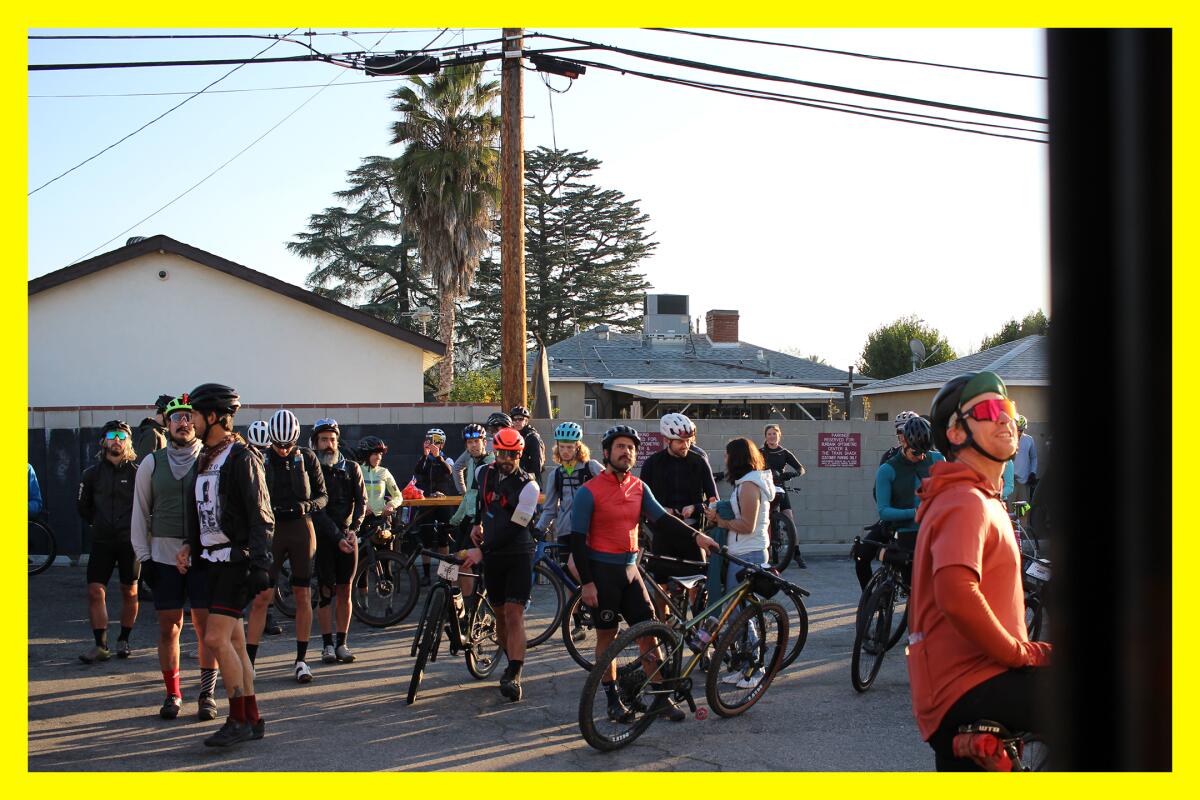
If you want to test your legs and sense of direction, there’s still time to sign up for this year’s final L.A. Tourist event. The full race usually involves covering 80 to 100 miles and 8,000 to 10,000 feet of climbing; there’s also a beginner option with half as many checkpoints. Either way, you’re in for a challenging — and rewarding — day in the saddle.
“There’s not another race like it,” said Kalenda.

3 things to do
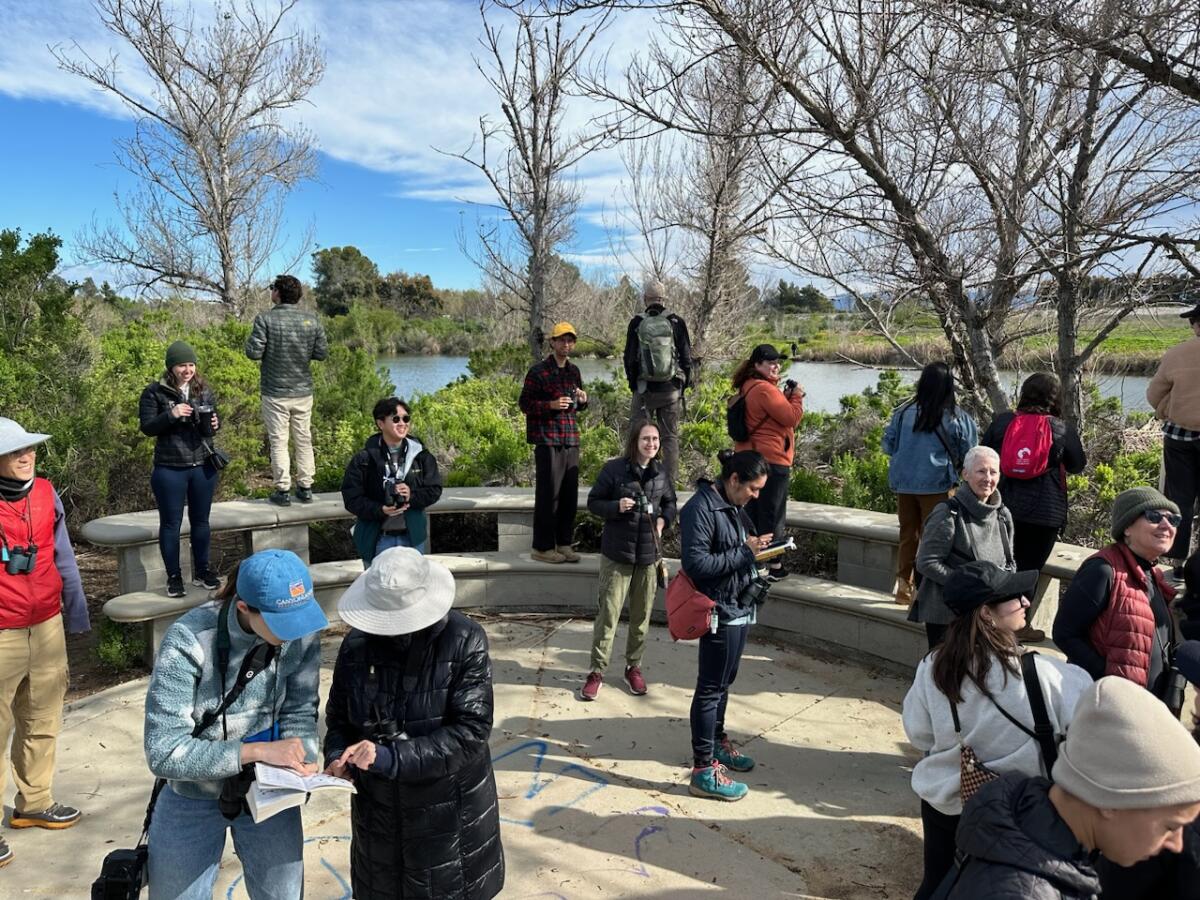
1. Gaze at the birds in Elysian Valley
Get a chance to spot some raptors, woodpeckers and wrens at Elysian Park alongside the members of Feminist Bird Club Los Angeles, a group that aims to create “a joyful and inclusive community by connecting people with birds, nature, and each other.” This 2½-hour beginner-friendly event may even include some observation of our feathered friends’ springtime courting and nesting. Attendees should BYOB (bring their own binoculars), though there may be a few extra pairs to borrow on a first-come, first-serve basis. The meetup kicks off at 8 a.m. Saturday at the grassy area in front of Grace E. Simons Lodge. It’s free to join but spots are limited, so be sure to sign up and get more detailed directions at eventbrite.com.
2. Show off your athleticism in San Dimas
Swim, bike and run through Bonelli Park for LA Tri-Series’ Spring Splash, the first of three events in 2024. The long-running (see what we did there?) gathering welcomes all experience levels between the ages of 12 and 100 and offers a handful of different challenges, including triathlon, duathlon, relays and a 5K run. Participants must be USA Triathlon members. It all kicks off on Sunday. Registration is currently closed for bib processing but will open back up on Saturday morning and stay open up to the day of the event. Check out the details at endurancecui.active.com.
3. Party with the whales in Oxnard
As we noted a few newsletters back, the Santa Barbara Channel was recently designated a Whale Heritage Area, of which there are only nine in the world. The Channel Islands Harbor is celebrating this feat with its 25th Annual Celebration of the Whales Festival. This year’s event will include a park concert, the opportunity to paint a community whale mural and an area for children’s activities. You can also take part in festivities at the Channel Islands Maritime Museum and the Channel Islands Harbor Farmers Market. The five-hour event starts at 10 a.m. on Sunday and is free to attend. For more information check out visitoxnard.com.

The must-read
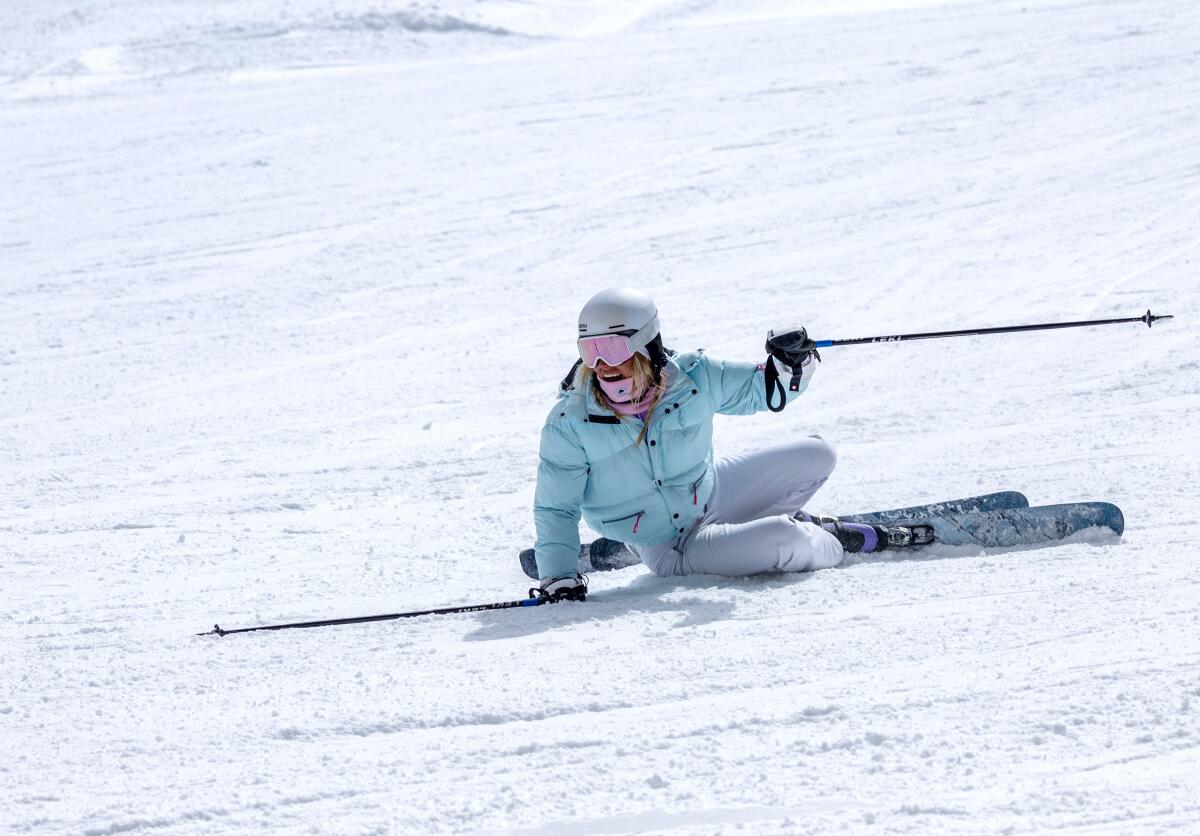
If you’ve ever skied or snowboarded, you know wipeouts are part of the deal. But in recent years, crashes and injuries have become more common and more catastrophic. Times writer Jack Dolan pored over state hospital data and uncovered some troubling statistics in his recent piece on ski accidents: In California, over 6,000 skiers and snowboarders went to the emergency room in 2022, a 50% increase from 2016. Hospital staff attribute the alarming rise in injuries to a slate of factors, including alcohol impairment and the rise of social media. Whether you’re an expert or you’re confined to the bunny hill, the article is a good reminder that skiing and snowboarding involve plenty of risk, and these sports demand focus and awareness.
“You’re like a 30-mile-per-hour weapon out there, bombing down the hill with, essentially, swords on your feet,” said Caitlin Crunk, Mammoth Hospital’s chief nursing officer.
Happy adventuring,

P.S.
Have you heard about the solar eclipse coming up on April 8? Unfortunately, we’ll only see a partial eclipse here in SoCal, but this NASA website has a wealth of info on the event and an interactive map that shows where the path of totality will fall.
For more insider tips on Southern California’s beaches, trails and parks, check out past editions of The Wild. And to view this newsletter in your browser, click here.
Sign up for The Wild
We’ll help you find the best places to hike, bike and run, as well as the perfect silent spots for meditation and yoga.
You may occasionally receive promotional content from the Los Angeles Times.




